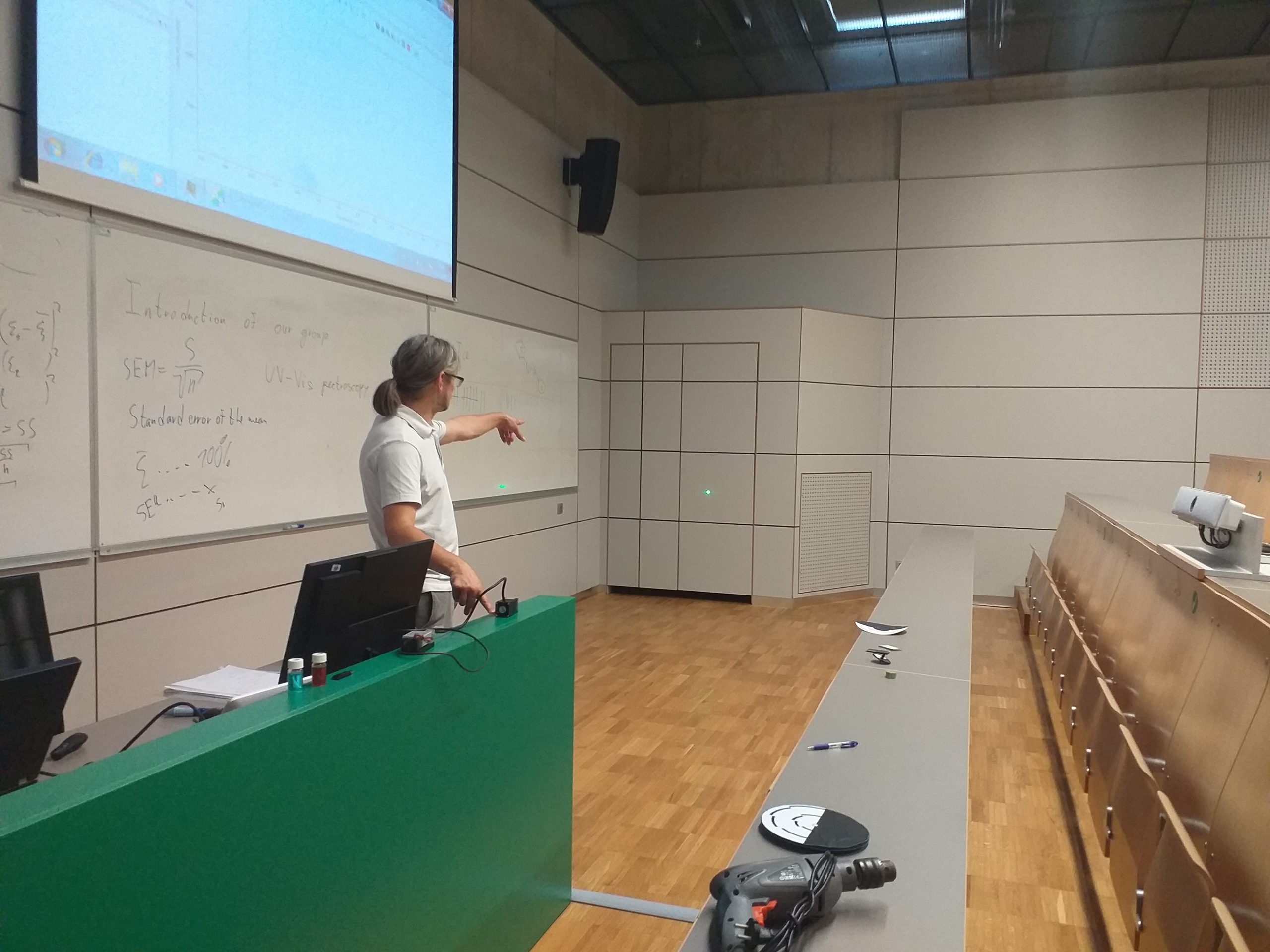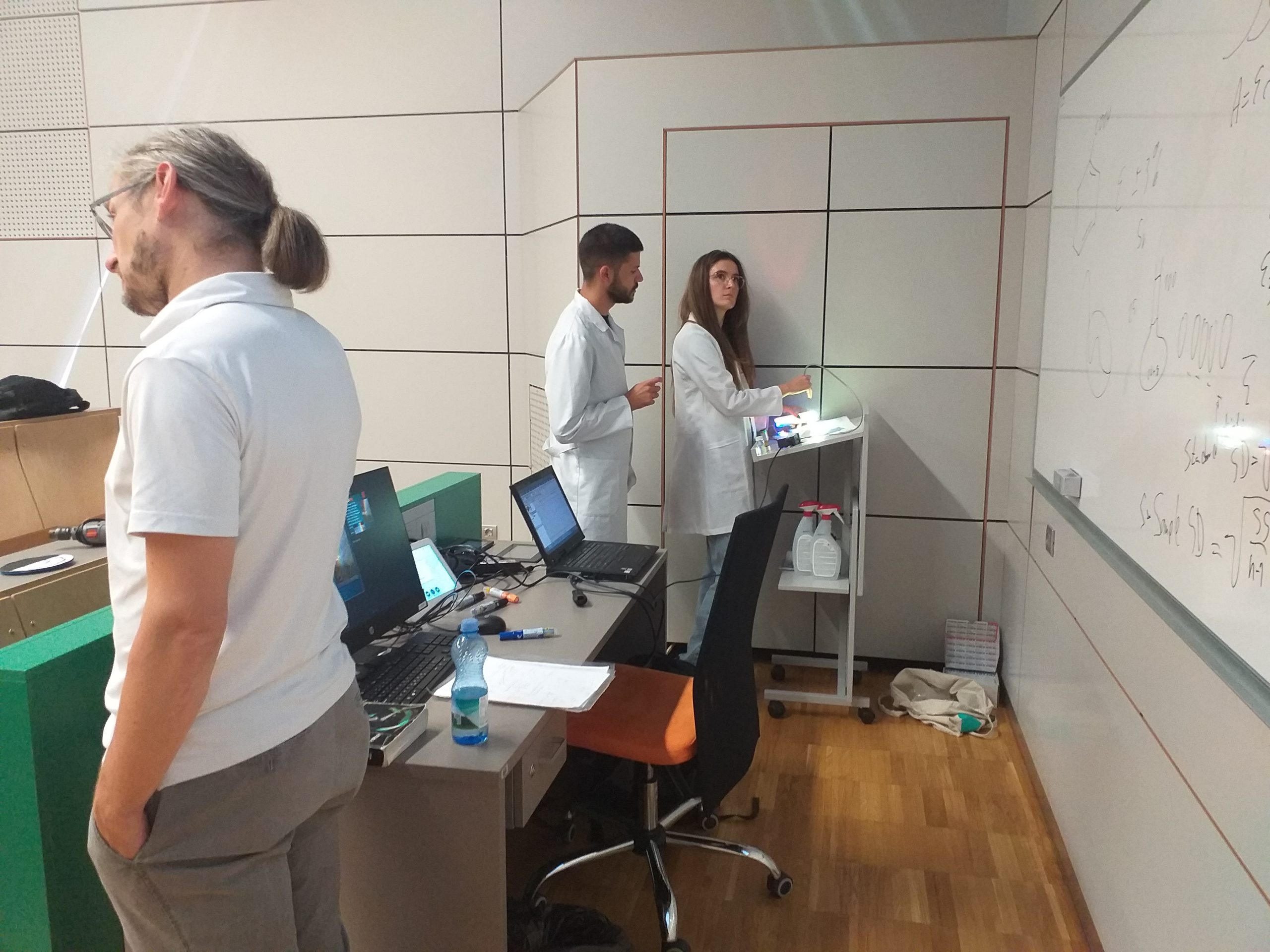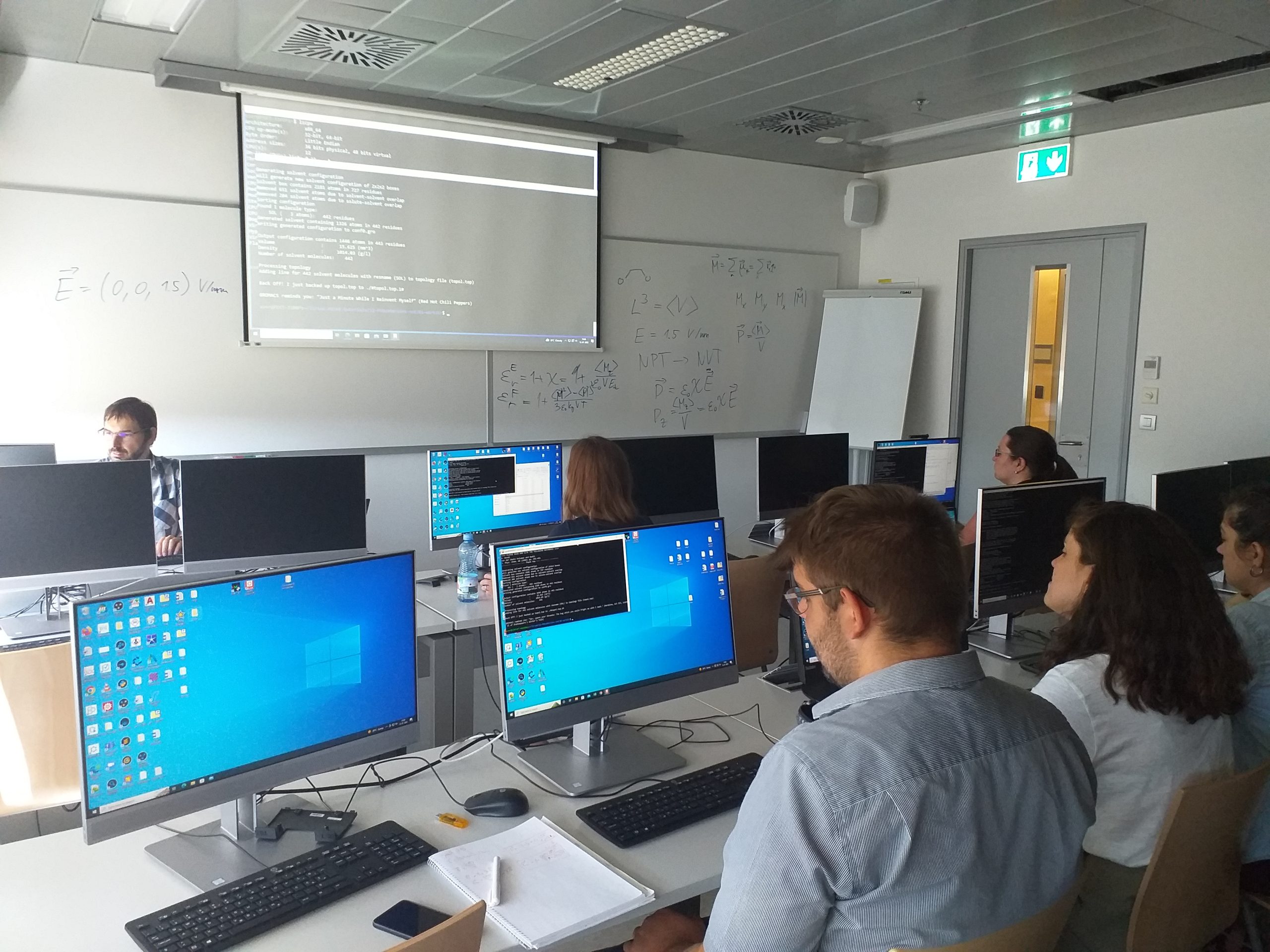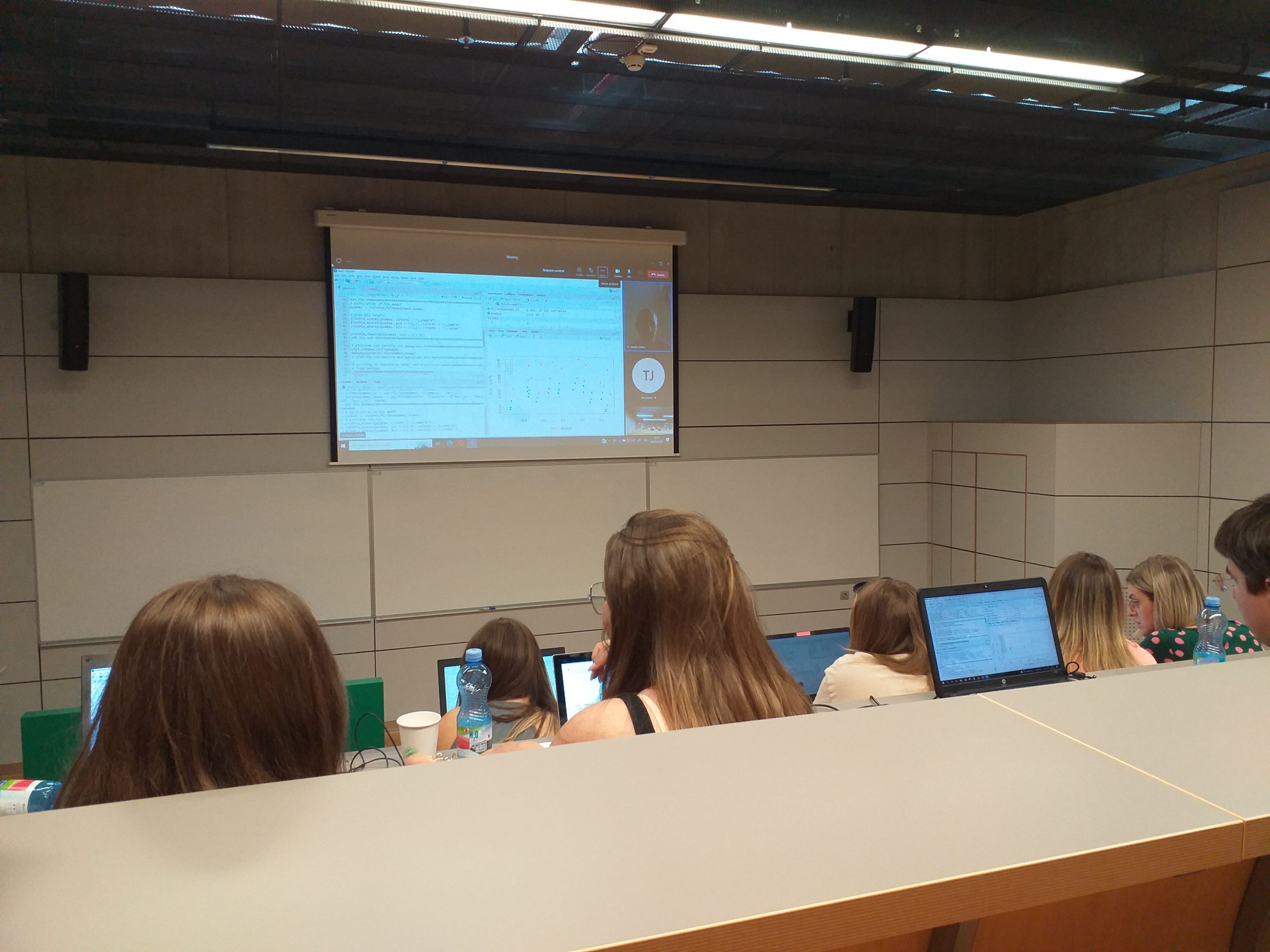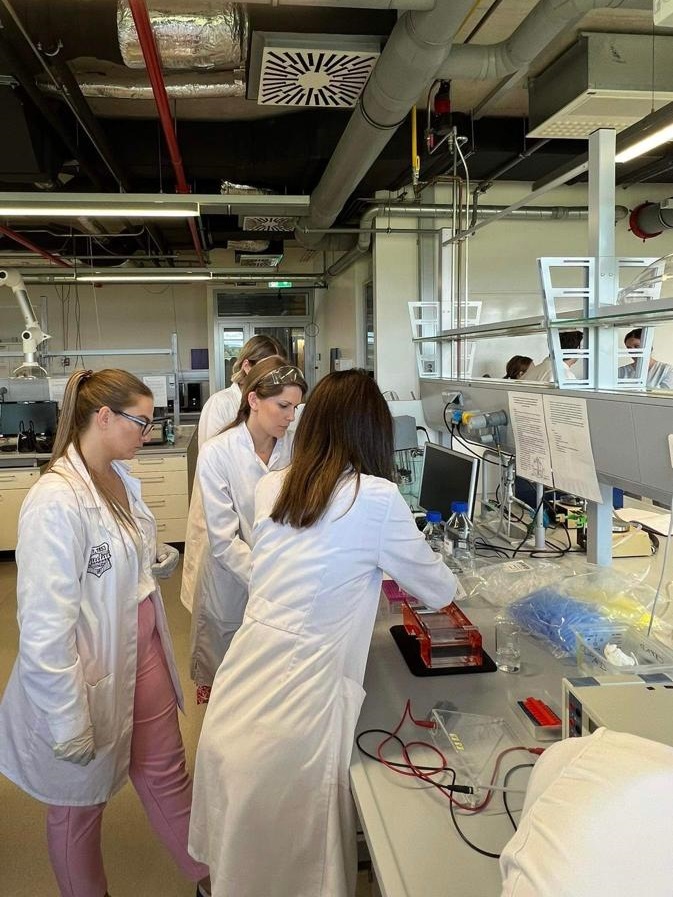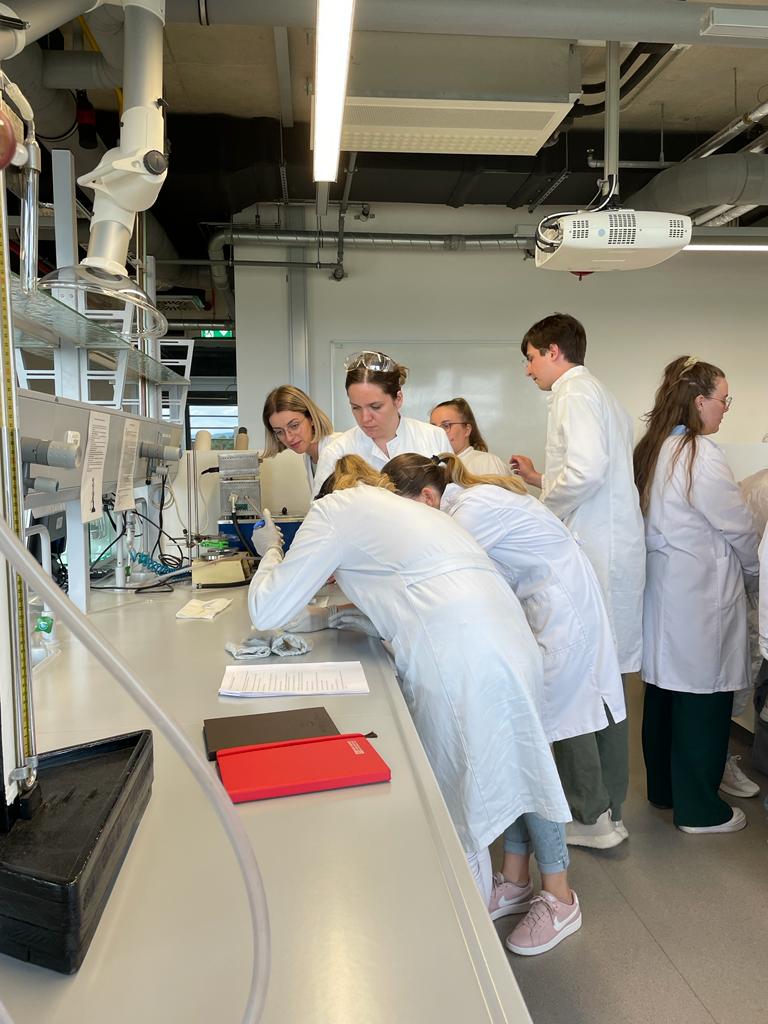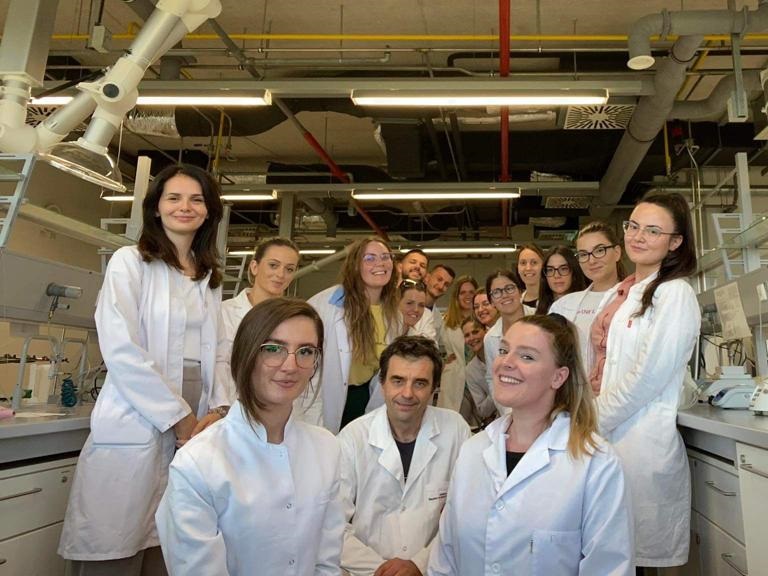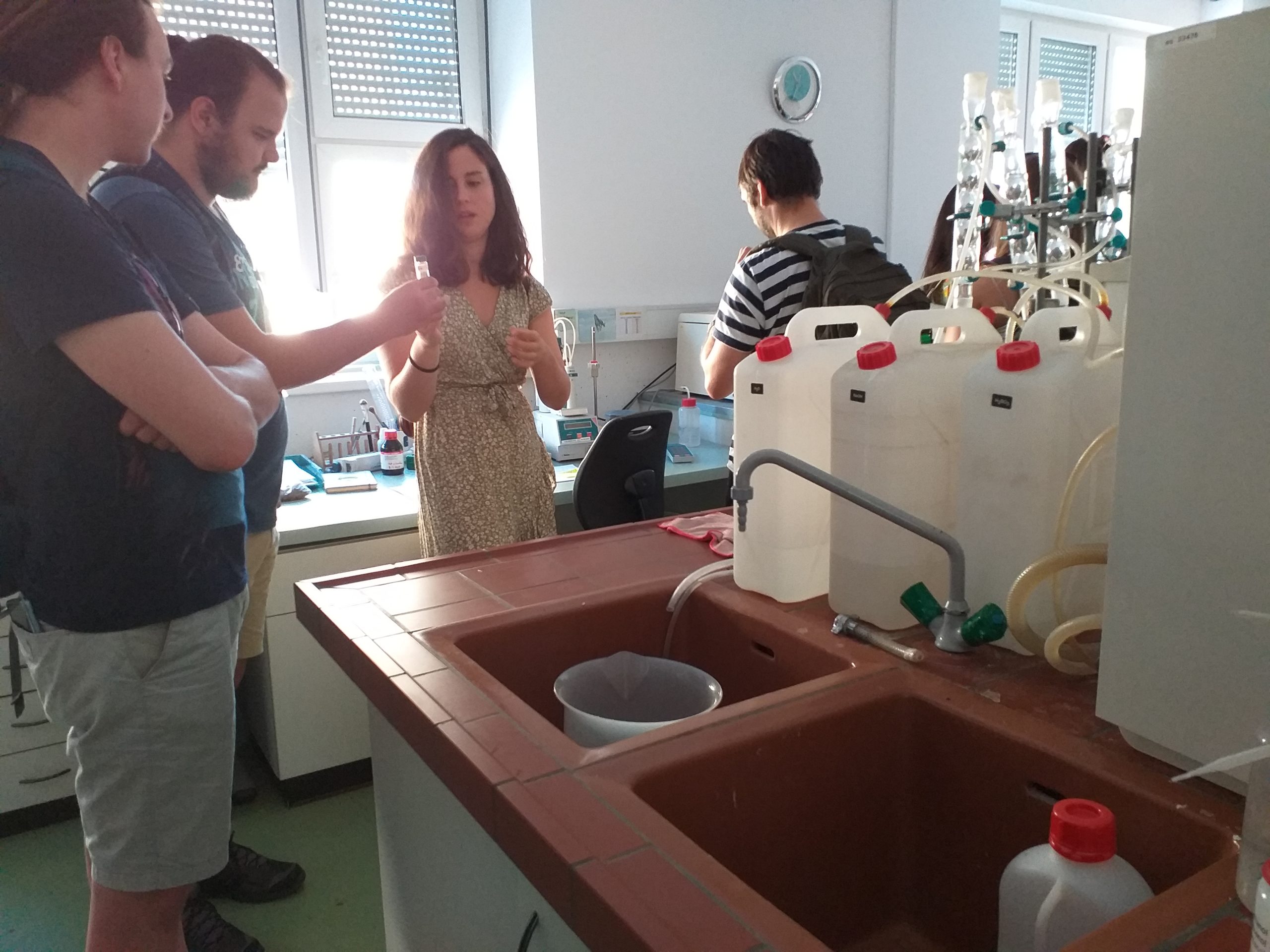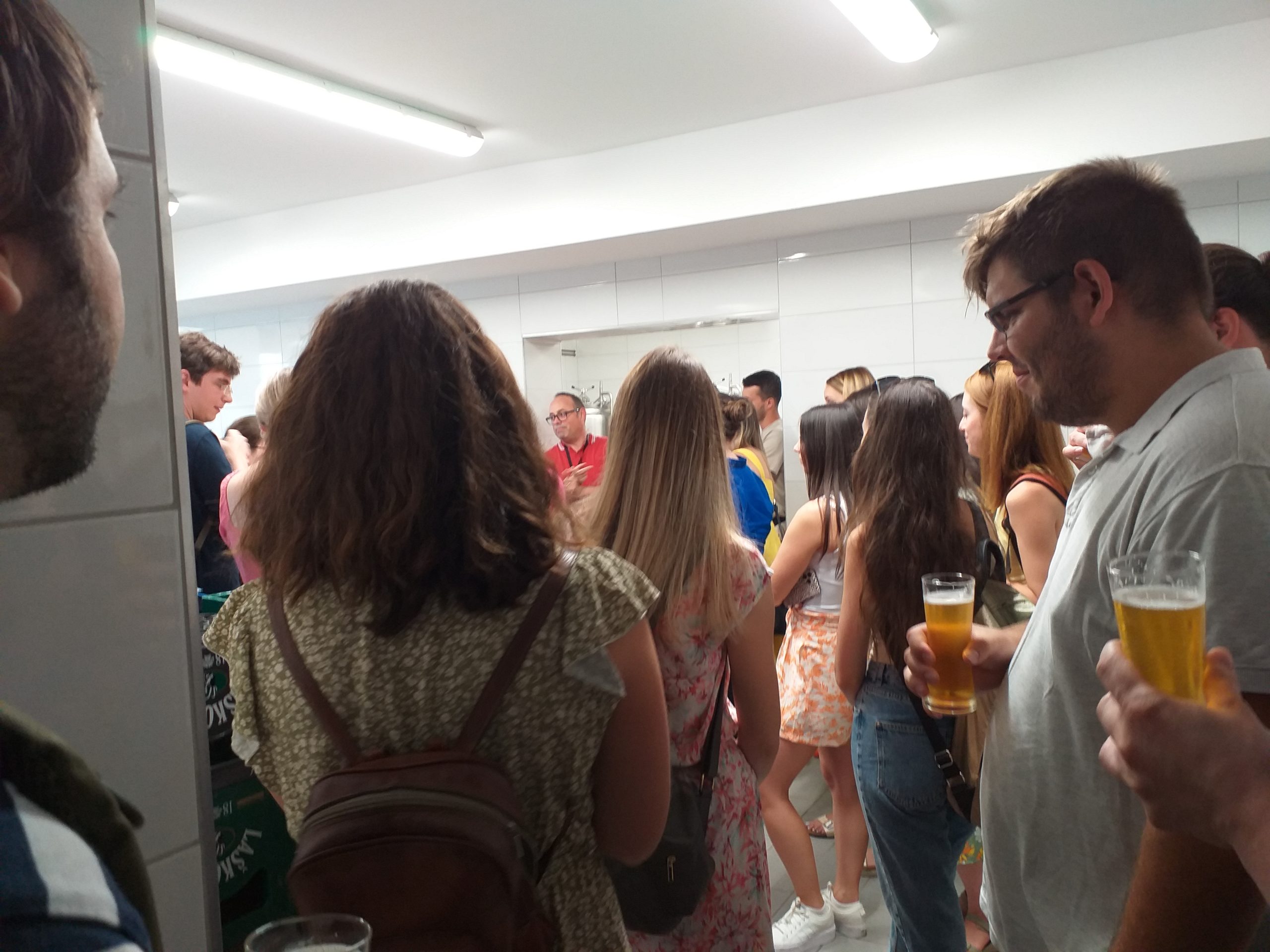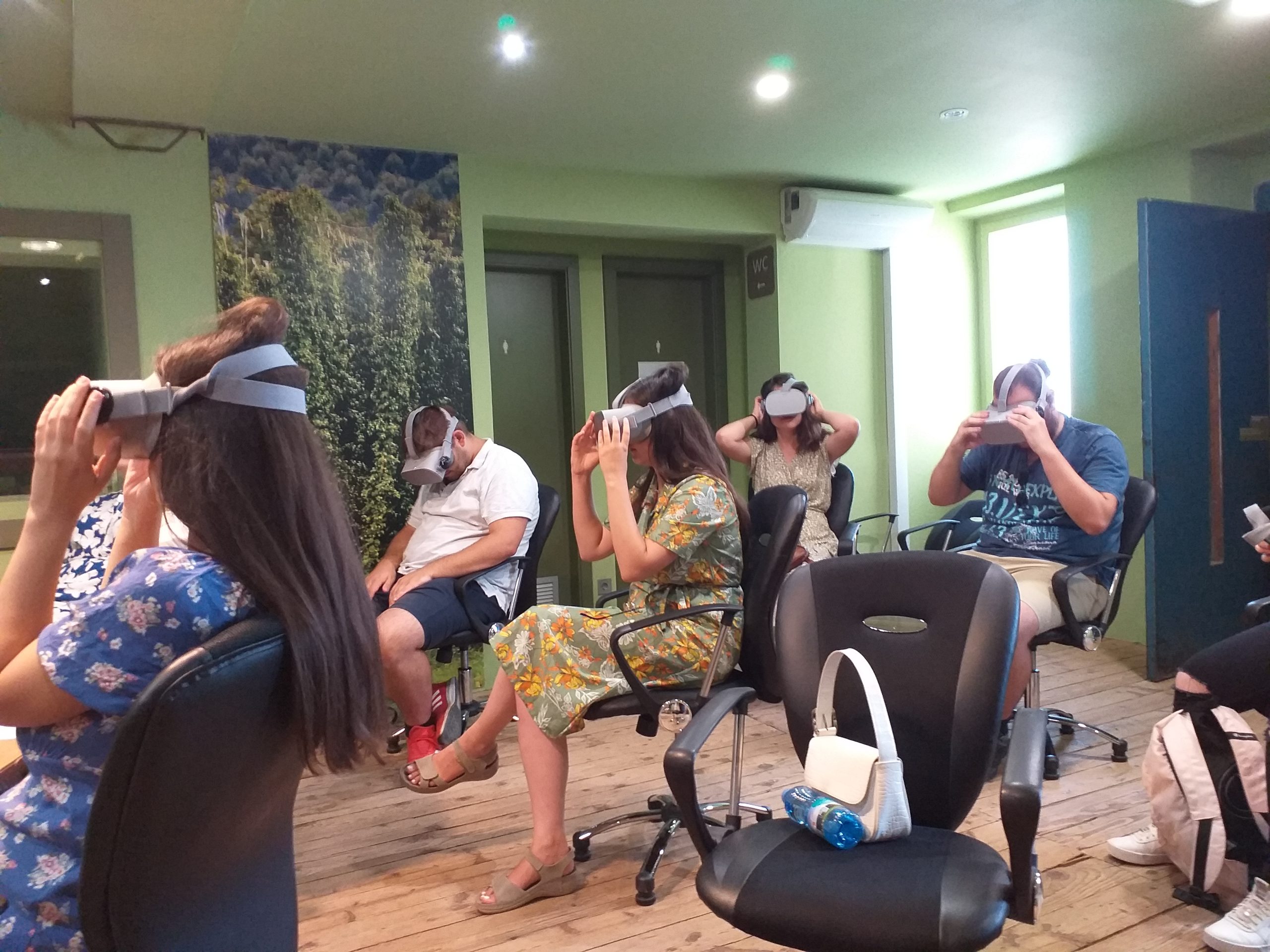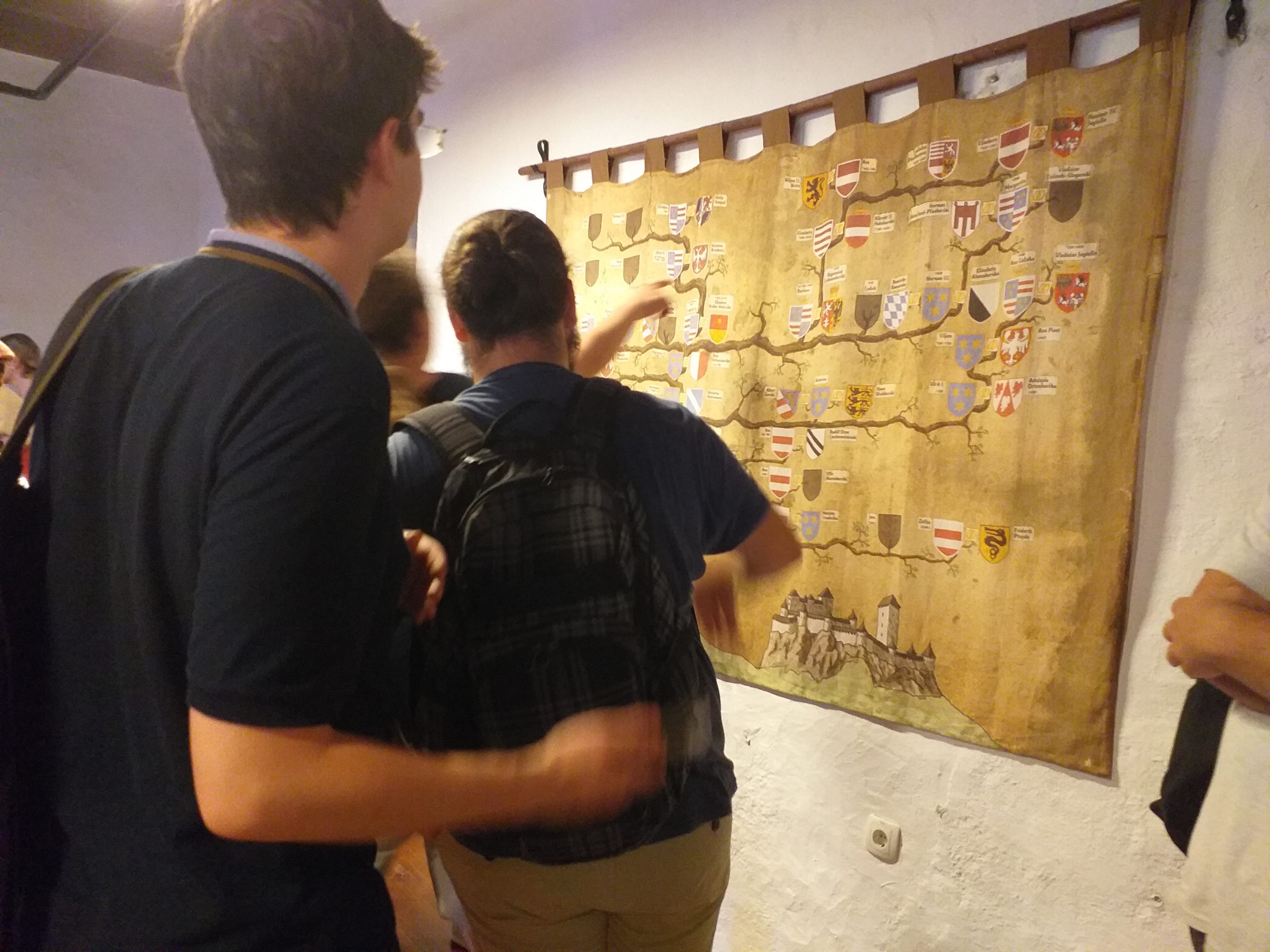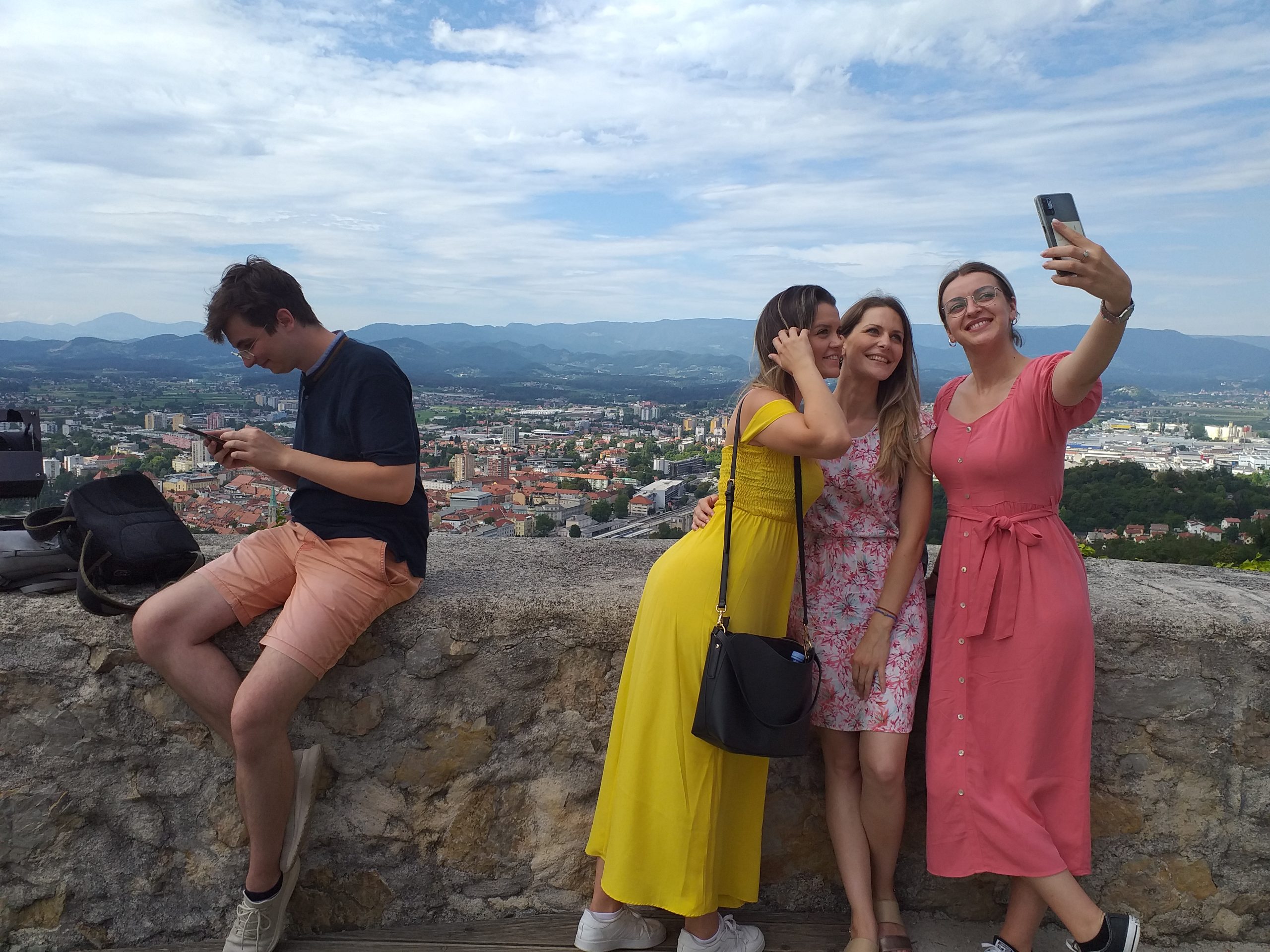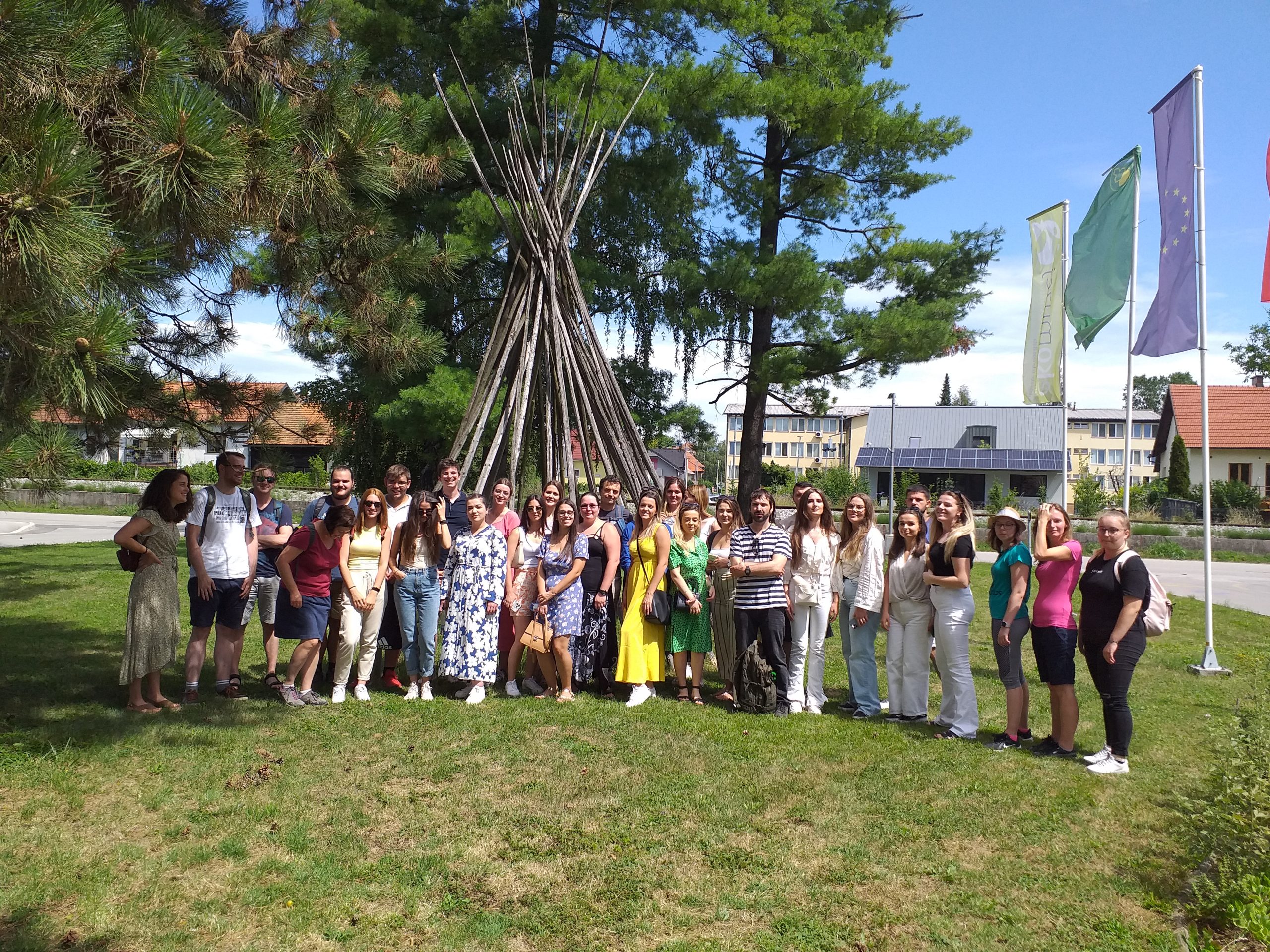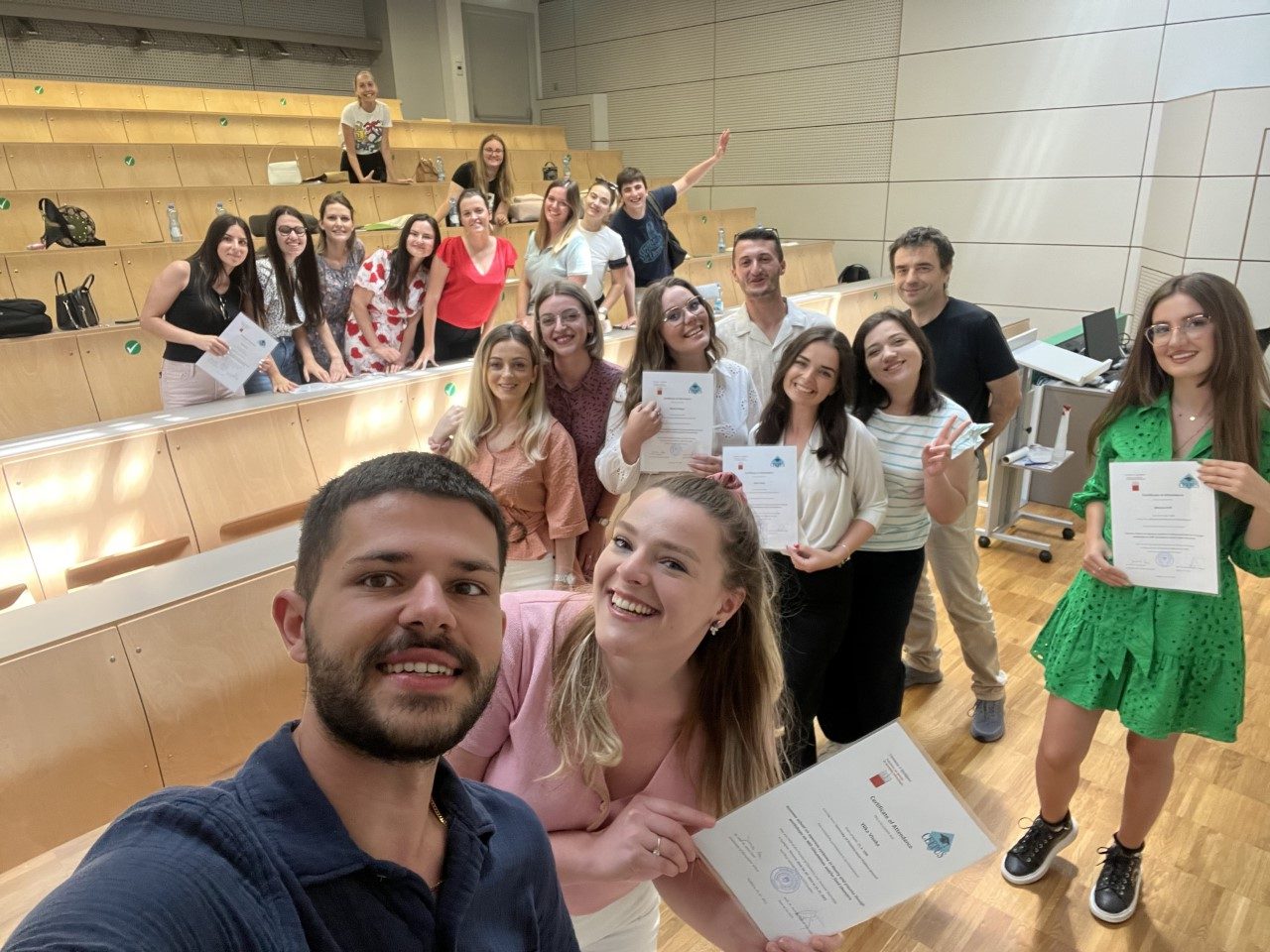Report on the CEEPUS (SI-1312 network) summer school (July 4th – July 15th 2022)
In the frame of the CEEPUS network SI-1312 “Water – a common but anomalous substance that has to be taught and studied” a summer school was organised in the period between Monday, July 4th, and (including) Friday, July 15th,, at the premises of the Faculty of Chemistry and Chemical Technology of University of Ljubljana (UL FKKT), Slovenia. The school was, in addition to student education, well dedicated also to promoting student mobility within the CEEPUS SI-1312 network and to getting to know each other teachers and students from different institutions involved in the CEEPUS SI-1312 network. Students who attended the summer school were granted 3 (three) ECTS credits.
Participants: 29 foreign students received a CEEPUS scholarship for participation in the summer school (all these 29 students came from institutions being part of the CEEPUS network SI-1312). In addition to these CEEPUS supported students, the summer school was (either through the full programme or just partially) attended also by two Slovenian students of UL FKKT and another CEEPUS student from Croatia, who was on a six-month student mobility at UL FKKT during the summer school, and two foreign students (one from Poland and the other one from Turkey) who were during the summer school event engaged at the ERASMUS student mobility at UL FKKT. Teaching at the summer school was mainly carried out with foreign teachers who visited UL FKKT on this occasion. Most of these teachers were supported by CEEPUS teacher scholarships, while the others used other financial sources (research Croatian-Slovenian bilateral project) or gave lectures virtually. In addition, three teachers, one doctoral student to help with workshops in Molecular Dynamics, and a few other supporting staff were engaged in the summer school from the side of the hosting institution (UL FKKT).
The concept of the summer school: The summer school was conceived in a way that students would be offered at least six hours of organised activities daily. This was mainly done by giving lectures in the morning (mainly between 10.00 am and 1.30 pm), then an hour for lunch (we advised them to use canteens in the vicinity), and then, as a rule, seminars or workshops-practical work (either in laboratories or in computer classrooms) between 2.30 pm and 5.30 pm). While the lectures were common for all students who attended the summer school, students were able to choose between two types of workshops. The first type of workshops (on the schedule coloured in green) was intended for students who were more oriented toward theoretical work in the field of chemistry and consisted of the learning of computer simulations of molecular dynamics (MD), which in recent years is a popular method of theoretical research of chemical systems (especially solutions). The second group of workshops (on the schedule coloured in yellow) was focused more to applied science and was focused mainly on the field of food chemistry. By selecting these two classes of workshops, we were able to cover various fields of interest of students coming from institutions included in the SI-1312 network. Due to organizational issues, students had to decide which type of workshops they would like to attend before the beginning of the summer school.
|
A lecture about specrometry given by Prof. Dominik Heger from Masaryk University, Brno (Czech Republic). |
If possible, lectures were carried out with an active involvement of students.
|
|
Lecturers were involved both in giving lectures in classrooms as well as in workshops (Prof. Jan Jirsák from J. E. Purkyně University in Ústí nad Labem during the workshop in the computer classroom). |
Professor Zoltán Kovács from Hungarian University of Agriculture and Life Sciences (Budapest) was giving his lecture online but still interactively.
|
|
Students appreciated lectures and practical help in the laboratory of lecturer Zimere Musliji from Mother Teresa University from Skopje, North Macedonia. |
Group work in the laboratory.
|
Social events and/or excursions carried out during in the frame of the summer school:
a) Guided (in English) a two-hour tour of the city centre of Ljubljana (Friday, July 8th, in the afternoon).
b) Social evening (socialising with food and drink) of students and teachers in the late afternoon hours of Friday, July 8th, in the Union pub in Ljubljana.
c) All-day excursion to Žalec and Celje on July 14th (Thursday). As part of this excursion, we visited the Slovenian Institute of Hop Research and Brewing (IHPS), The Eco-Museum of Hop-Growing and Brewing Industry in Slovenia and The Green Gold Fountain, and Celje Castle in Celje.
|
A group picture in the laboratory after finishing the laboratory exercise.
|
Visiting Slovenian Institute of Hop Research and Brewing in Žalec.
|
|
There is a small brewery in the Slovenian Institute of Hop Research and Brewing. |
Virtual reality in the Eco-Museum of Hop-Growing and Brewing Industry in Slovenia.
|
|
Celje Castle was home of one of the mightiest families in Central Europe in 14th and 15th century.
|
New friendships were forged during the summer school.
|
Coordination activities within the CEEPUS network SI-1312: The presence of many contact persons from the institutions involved in CEEPUS SI-1312 network was exploited to hold a coordination meeting of the network. Eight of the 15 contact persons were present at this meeting, but unfortunately due to technical difficulties, we were unable to hold the meeting in a hybrid manner so that also contact persons who were not physically present at the summer school could attend the summer school. At the meeting, among others, it was agreed to gradually expand the CEEPUS network, upgrade the CEEPUS network website, new acquaintances among contact persons were formed, and a decision to strengthen collaboration (both educational and scientific) among groups in the network was done.
Acknowledgements: Organizers of the summer school acknowledge financial support of CEEPUS for the mobilities of students and teacher as well as also financial support of the Faculty of Chemistry and Chemical Technology that greatly facilitated carrying out the summer school.
|
A group picture from the excursion.
|
The summer school is finished. |

